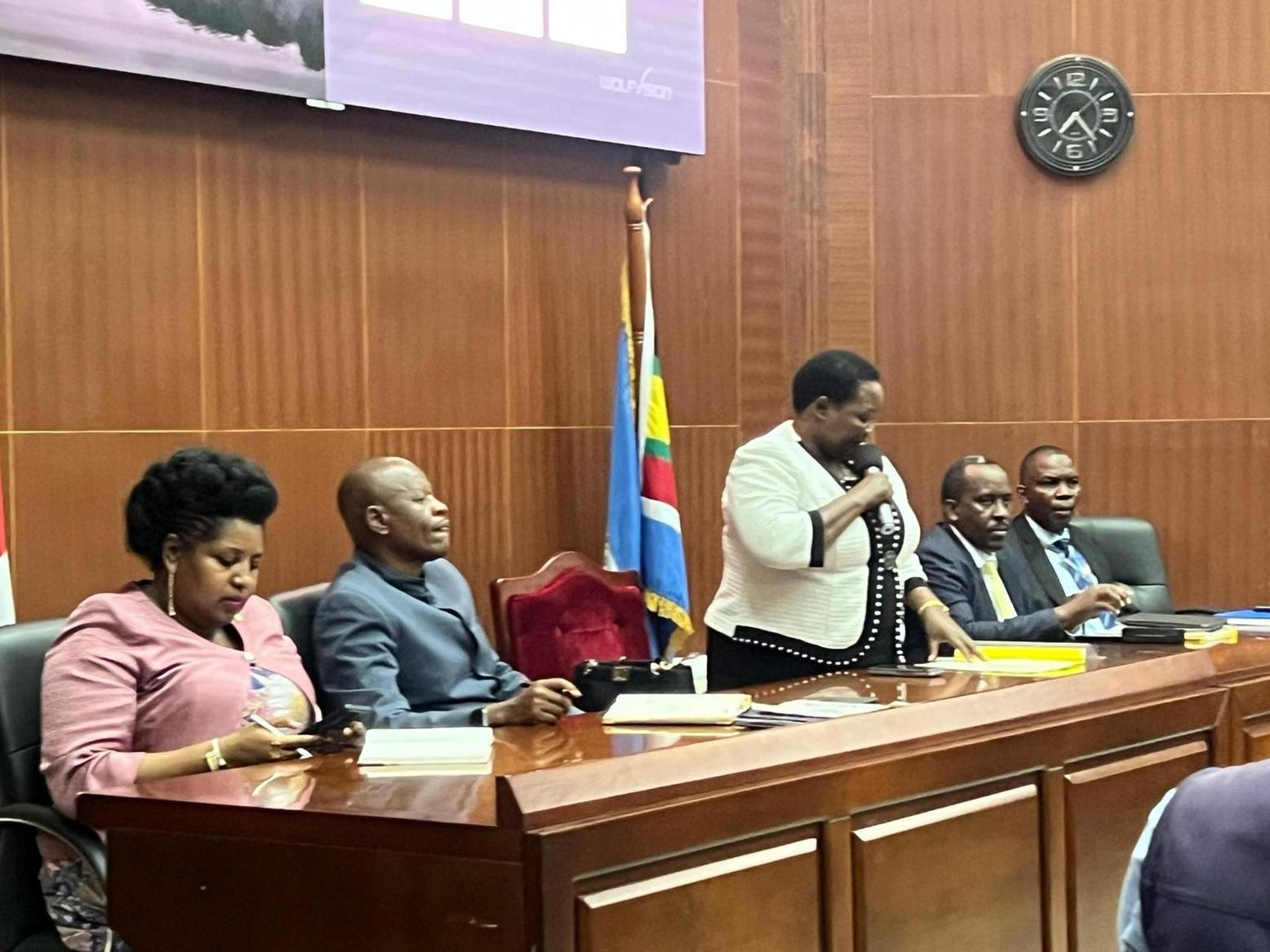Africa-Press – Uganda. Kampala traders postponed a meeting with Prime Minister Robinah Nabbanja on Wednesday, insisting on the release of 17 colleagues arrested during Tuesday’s protest, highlighting growing tensions over taxes, fees, and trade policies.
Tensions flared on Wednesday morning as traders gathered at the Uganda Bureau of Statistics (Ubos) auditorium for a highly anticipated meeting with Prime Minister Robinah Nabbanja, only to refuse to proceed until their detained colleagues were released.
The meeting, intended to address grievances over high taxes, increased rental fees, and other trade-related policies, was promptly adjourned until 2pm after traders, led by the Kampala City Traders Association (KACITA), insisted on solidarity with the 17 colleagues arrested on Tuesday during a protest in Kampala.
Following the adjournment, traders marched to Buganda Road Court to demand the release of the arrested individuals.
The 17 were charged with common nuisance, with prosecutors alleging that they unlawfully staged a procession that obstructed traffic and inconvenienced the public.
Appearing before Grade One Magistrate Winnie Nankye, the accused denied the charges.
Sixteen of them were granted non-cash bail of Shs200,000 each, with fellow traders standing in as sureties.
Each surety was ordered to execute a non-cash bond of Shs500,000 guaranteeing the accused’s return to court on October 15, 2025, for trial.
However, one accused, Christopher Okecho, was remanded to Luzira Prison after court failed to secure a Japhadola language interpreter.
His bail application will be reconsidered once an interpreter is available.
Shortly after the release of the 16, KACITA chairman Issa Sekitto addressed journalists, confirming that traders are now willing to reconvene with Prime Minister Nabbanja for the rescheduled meeting.
“We are now ready to engage with the Prime Minister to find a lasting solution to our concerns,” Sekitto said.
The traders’ protest stems from a range of issues, including the mandatory use of the Uganda Revenue Authority’s Electronic Fiscal Receipting and Invoicing System (EFRIS) and the licensing of foreign nationals to operate in low-income sectors—a move local traders argue stifles domestic enterprise.
As the meeting with Prime Minister Nabbanja resumes later today, attention remains on the government’s response to the traders’ demands and the broader implications for trade regulation and economic policy enforcement in Kampala.
For More News And Analysis About Uganda Follow Africa-Press






